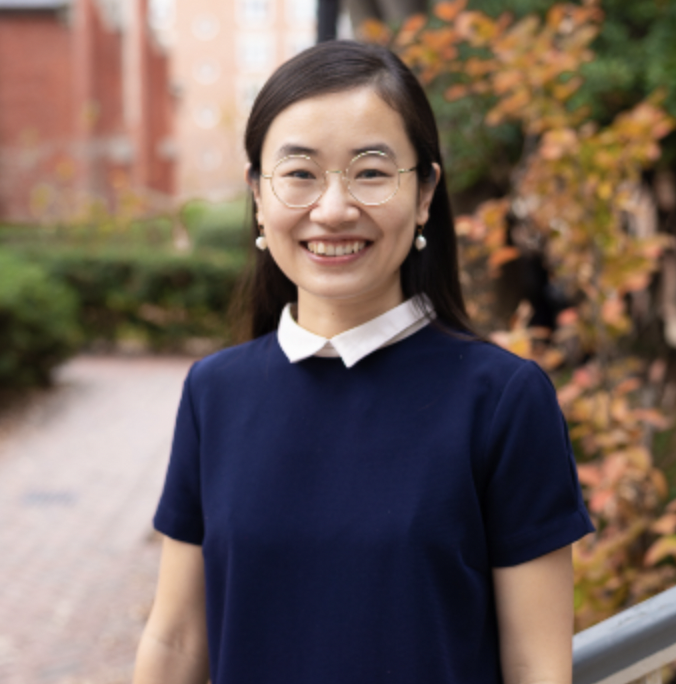Yuan Gao, professor and PhD candidate in the history department, discussed environmental issues in China in the department’s “Asia in Depth” seminar on Sept. 19.
The Asia in Depth seminar is hosted by the Georgetown Initiative for Global History and the Asian Studies Program. The seminars, in-person since last year after the COVID-19 pandemic, aim to explore different historical aspects of China, covering the political, economic and social dynamics of the country.
Gao’s lecture, entitled “Tigers and Locusts: Environmental Changes in Late Qing Xinjiang,” focused on the effects of land reclamation and expansion in the Xinjiang region during the late 19th and early 20th centuries. During her talk, Gao shared how the expansion of arable land and rapid population growth led to ecological destruction during the late Qing era, including locust plagues, flooding, desertification and the extinction of the Caspian tiger.
Bryan McCann, chair of the history department, said the return of the “Asia in Depth” seminar is vital to the academic community.
“It is one of the prized seminar series in the history department bringing scholars at the forefront of their fields to campus to promote scholarly exchange and strengthen networks,” McCann wrote to The Hoya.

Gao joined the history department in 2017, studying the social and environmental history of Central Asia with a focus on the Qing and Russian Empires in the Xinjiang region. In her research, she seeks to emphasize the dynamic people, frontiers and environment of the region.
Gao said she chose to study Xinjiang because of her undergraduate background in Russian and her Master’s degree in Eurasian Studies from Nazarbayev University in Kazakhstan.
“I always had an interest in non-Russian people and non-Han people in China, which grew when I went to Russia and Kazakhstan where I lived for six to seven years,” Gao told The Hoya. “Xinjiang and Central Asia were divided by nation states and imperial divisions by the Russian and Qing empires. I got interested in how they shared geographical and environmental issues, but also wondered why they became so different now.”
Gao used both Chinese and Russian sources when researching changes in the Xinjiang region, eventually focusing on environmental problems on both sides of the border.
“I thought, is there a way to bridge these two regions and is there a way to transcend the borders to put these two regions together to study? I realized a good way to write about Xinjiang is in an environmental perspective because it’s not been done that way,” Gao said. “We talk about the Silk Road and a lot of that happened in Xinjiang. I’d love to show how people actually lived and handled the land.”
Gao chose to focus on locusts because they appeared often in her sources. Locusts thrived as the amount of arable land rapidly expanded and fluctuations in temperatures favored locust plagues.
Gao also researched Caspian tigers after she found photos of Russian soldiers hunting them. The tigers went extinct mainly due to hunting and habitat degradation after expansive land management and population growth.
Michelle Wang, associate professor of Asian art history and the co-organizer of “Asia in Depth” with James Millward, a professor of intersocietal history, said that she was happy to restart in-person seminars after the COVID-19 pandemic.
“The Asia in Depth series has been instrumental in bringing together faculty and students in Asian studies from across the university and eliciting interest from faculty and students outside of Asian studies as well, due to the breadth of speakers and topics that we offer,” Wang wrote to The Hoya.
Gao concluded her presentation with a quote from a Qing Dynasty official who observed overpopulation and the depletion of Earth’s resources. She said that the quote is especially relevant to today’s environmental policies.
“In the quote, the atmosphere is leaking and internal energy is waning,” Gao said. “This is an accurate depiction of what is happening now too. There is a time that the resources will run out, and we’re hitting the limit. We just don’t know when the limit will come.”















Sresth Gupta • Sep 23, 2023 at 9:56 am
Very insightful article. Hard to believe it was written by a student!